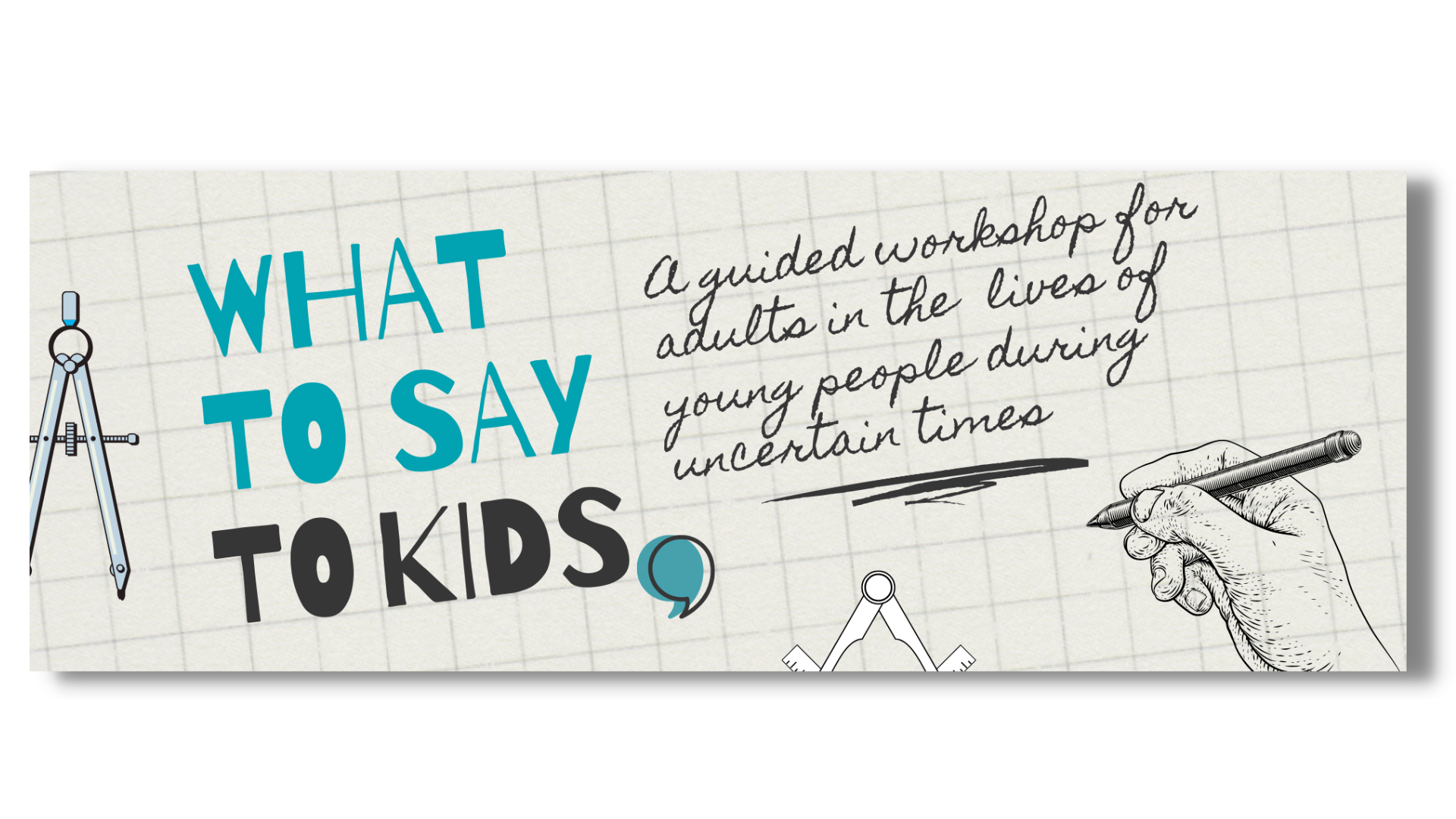What To Say To Kids Resources (2022)
Welcome!
Thanks for visiting and participating in What To Say To Kids: A Guided Workshop for Adults in the Lives of Young People During Uncertain Times (whew, that’s mouthful!). Below are references from the presentation, along with resources, handouts, and activities. To access the PDF handouts and activities, please use the special code provided during the presentation.
WTSTK Newsletter Coming October 2022!
Good news! I’m launching a What To Say To Kids (WTSTK) newsletter in October that will include more research, tips, and suggestions to help adults support young people as they navigate their mediated lives. Sign up here:
WTSTK Resources
Media Tools
How To Make a Family Media Use Plan (from the American Academy of Pediatrics).
Media Literacy and Critical Thinking Online (U.S. Department of Homeland Security): [PDF]
Mobile Apps. Here are some mobile apps that have been mentioned in research studies I reviewed for this presentation. I’m sharing these with you in the spirit of providing technology as support, rather than as surveillance of our young people. . Note: Some apps have been discontinued like Cerburus, which shut down a few years ago for violating terms of service. Keep this in mind as you reference these mobile apps: Technologies are not neutral, nor are they a substitution for meaningful connections with our young people. https://www.tomsguide.com/us/best-parental-control-apps,review-2258.html
NBC Nightly News For Kids: https://www.nbcnews.com/nightlykids
The Trevor Project (24/7 crisis support services for LGBTQIA youth): https://www.thetrevorproject.org
Today Explained, to Kids: https://www.vox.com/today-explained-to-kids
YouTube Kids: https://www.youtubekids.com
WTSTK Handouts and Activities
To access PDFs, click here and use the special code provided during the presentation.
Write a Personal Letter to a Young Person
Tips for Adults Supporting Kids Consuming Scary News
FAQs
Proactive Guide to Foster Connection, Support, and Critical Literacy
References
Below includes a list of research and reporting cited in the presentation.
Academic and Government Publications
Auxier, B., Anderson, M., Perrin, A. and Turner, E. (July 28, 2020). Parenting in the age of screens. Pew Internet Research report. Retrieved from https://www.pewresearch.org/internet/2020/07/28/parenting-children-in-the-age-of-screens/
Ebbinkhuijsen, M., Bevelander, K.E., Buijzen, M., and Kleemans, M. (2021).“Children’s emotions after exposure to news: Investigating chat conversations with peers as a coping strategy,” Journal of Youth and Adolescence, 50: 1424-1436.
Edgerly, S., Thorson, K., and Bode, L. (2018). “Do parents still model news consumption? Socializing news use among adolescents in a multi-device world,” ( New Media & Society, 20(4): 1263–1281.
Gennaro, S. and Miller, B. (2021). Young people and social media: Contemporary children’s digital culture. Vernon Art and Science Inc.
Madden, M. Lenhart, A, and Fontaine, C. (March 1, 2017). How youth navigate the news landscape. Data & Society report. Retrieved from https://datasociety.net/library/how-youth-navigate-the-news-landscape/ [PDF].
News and Trade Publications
An Out Teen in the ‘Don’t Say Gay’ State (September 2022). What Next Podcast.
Don’t Teach Your Kids to Fear the World by Arthur C. Brooks (September 2022). The Atlantic.
Inside the Adolescent Mental Health Crisis (August, 2022). The Daily Podcast.
Social Media Wellness: Helping Tweens and Teens Thrive in an Unbalanced Digital World by Ana Homayoun (2017).
Teens in Distress are Swamping Pediatricians by Matt Richter (May 2022). The New York Times.
The Chaos That Made YouTube a Juggernaut (September 2022). What Next TBD Podcast.
The DeSantis Ally on the School Board (September 2022). What Next Podcast.

